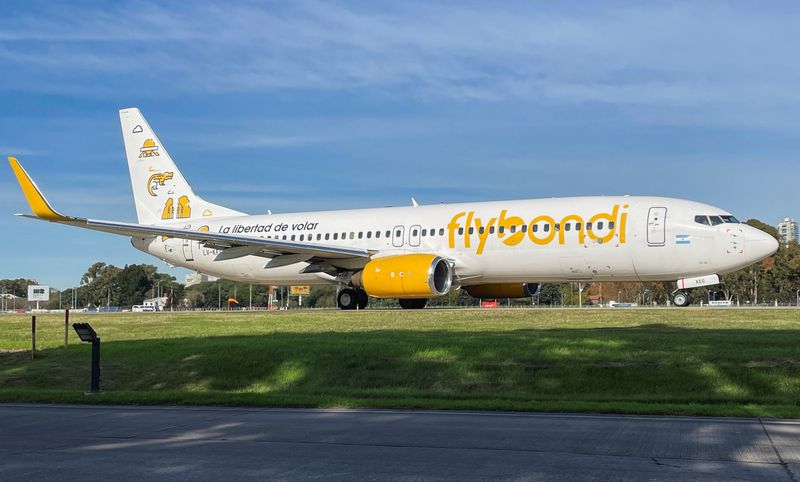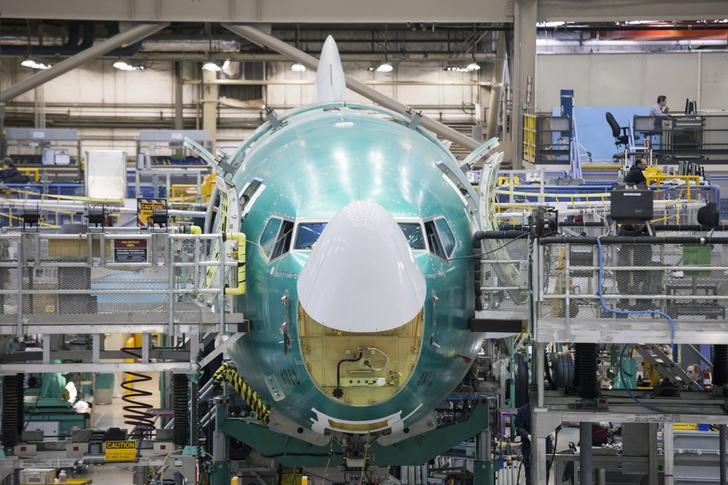By Eliana Raszewski
BUENOS AIRES (Reuters) - Argentine budget airline Flybondi said on Tuesday it would ground two planes due to an inability to access U.S. dollars needed to pay for services outside the country, underlining the strict capital controls facing many companies.
Flight cancellations and delays will affect 5,500 passengers between Wednesday and Friday, according to a statement from the airline.
Flybondi said it had been unable to obtain official authorization to make foreign leasing payments for its fleet, in addition to other specialized services it must acquire outside the South American country.
The capital controls stem from the government's policy of guarding the central bank's scarce foreign currency reserves, needed to pay down debt but also used to finance dollar-denominated imports.
Flybondi has 12 Boeing (NYSE:BA) 737 planes in its fleet and its 20 daily domestic routes make up about a fifth of the domestic industry.
Its decision to ground planes underscores the difficulty accessing hard currency facing even big companies, a problem made worse by a historic drought that sharply reduced farm exports, which normally fill central bank coffers with dollars.
The recent drought came amid an already prolonged economic slump fueled by triple-digit inflation and the steady deterioration of the country's peso currency.
Flybondi's announcement follows other efforts by the government to preserve central bank reserves, affecting the energy sector and provincial governments.
The country's top trade official stressed the need to prioritize how it marshals reserves, while also appearing to question the amount Flybondi had sought as excessive.
"Today the government administers reserves looking after priorities and needs of various sectors," Trade Secretary Matias Tombolini wrote on Twitter.
He noted that Flybondi said it needed access to $11 million for leasing and other services "but the evolution of its cost payments showed an average of $150,000 per plane per month."

Tombolini added that the airline agreed to request authorization for $6.2 million for two months, and that its request would be analyzed.
Flybondi declined to comment beyond its earlier statement.
